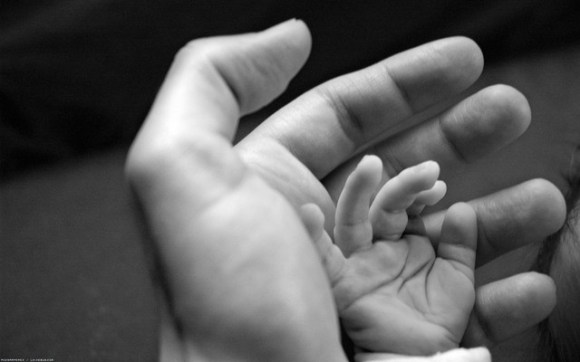
The act of raising a child is never easy. Some countries offer parents enough rights and protections to make childcare a bit less of a burden, but the struggles and uncertainties that come with supporting another tiny human should never be disregarded.
That being said, everyone’s favorite opinionated Japanese blogger, Madame Riri, has a few things to say about how raising children in Japan is “ten times more difficult” than it is in foreign countries. Keep in mind that Madame Riri has only ever traveled to France and does not actually have any children of her own. But who knows? Perhaps there’s some truth buried beneath the mounds of limited observation, hearsay, and conjecture!
According to Madame Riri’s findings, the experiences of those who have raised children abroad sound surprisingly easy compared to the struggles that Japanese mothers face. A Japanese study from four years ago seems to back up the claim. In it, many foreign women who bore children outside of Japan were asked about their experiences with child-rearing. Many respondents commented on the helpfulness of perfect strangers, saying that when they were pregnant or in charge of an infant, they were often met with warm expressions and kind words. According to Madame Riri, this level of eager reception is not present in Japan, and this core difference is what makes raising children difficult in the land of the rising sun.
The primary example that Madame Riri gives for why raising a child in Japan is so difficult is all to do with strollers. Japan’s Transportation and Tourism Board has set nation-wide guidelines for those who wish to take strollers onto buses and trains. Basically, if the train or vehicle is crowded, they ask that you save space by folding up your baby stroller. Sounds a bit vague, but it’s a reasonable request. While sometimes putting away the stroller proves difficult and the contraption becomes a bit of a nuisance for those in the vicinity, Madame Riri insists that even when the trains and buses are not especially packed, fellow travelers judge those who keep their strollers unfolded.
On the other hand, according to the popular blogger’s observations, parents living in foreign countries (by which we can assume she means highly developed Western urban areas) are privileged with the right to stand on a bus or train with their baby in their arms and their strollers unfolded without feeling ashamed. She goes on to describe two distinct moments from her time in France. First, a nearby stranger helped lift a stroller onto a train car without even being asked, and then a different stranger on a crowded bus offered their seat to a woman with an infant in her arms. To Madame Riri, the kindness that was shown to those in charge of a child was striking and impactful.
Just for the record, I have personally seen these kinds of things happen in Japan as well. It’s standard for the trains and buses here to have seats reserved for those who are pregnant, accompanying small children, elderly, or handicapped. Still, the generosity of someone offering their seat to another in need can happen regardless of where that someone is sitting. But moving on…
Another point in the favor of foreign child rearing, according to Madame Riri, is the special treatment that people with children are given in places like hospitals and government offices. Apparently, in many places where long lines can develop, mothers who are accompanying small children are given priority in line and do not have to wait as long before receiving service. This practice is unheard of within Japan, though I can’t help noting that it’s also pretty rare in America, too.
For being characterized as so polite, Japanese people take on a strangely relentless attitude against those who cause a disturbance. And so, many Japanese women will decline time out with their friends, because they do not want to get in the way by dragging their kids along. In addition, they feel a very strong sense of shame, as if having committed a terrible crime, if the child cries in public, apologising repeatedly to those around them.
Just for the record, this is Madame Riri’s hearsay and conjecture, because she has never had children of her own. While it is certainly true that Japanese people are under a lot of social pressure to conform and to preserve the peace, is there any good parent who is unmindful of when their children cry? Is that really a point that is particular to Japan?
Japan is currently suffering from a declining birthrate. It’s for that reason that Madame Riri urges its people to look upon pregnant women and young children with a little more fondness. Letting oneself be inconvenienced a little in order to show kindness to those raising children can do a lot to raise the spirits of parents under stress and make the country an altogether better place for bearing children.
Now, while I entirely support our opinionated blogger’s final point, I can’t help but feel that she overlooked a lot of major issues that would have supported her initial assertion. Japan, or rather urban Japan, is undoubtedly a difficult place to raise young kids, but the helpfulness of people on trains is probably not the biggest problem the country faces. Maybe next time we can talk about other parenting hurdles, such as the expectations placed on women to quit work as soon as they’re married, the near non-existence of maternity leave, the difficulty of enrolling one’s child in a daycare, and the complete lack of babysitting services…
What do you think, readers? What are the highs and lows of raising young children in the places you’re from?
Source: Madame Riri (Japanese)
Images: Pregnancy and Baby, HDW


 5 reasons why Japanese expats say “sayonara” to their homeland for good
5 reasons why Japanese expats say “sayonara” to their homeland for good Secret staff cafeteria in Tokyo is a hidden gem you won’t find in travel guides
Secret staff cafeteria in Tokyo is a hidden gem you won’t find in travel guides Secret staff cafeteria in Osaka is one of Japan’s best-kept secrets
Secret staff cafeteria in Osaka is one of Japan’s best-kept secrets Tinder just opened a convenience store in Japan, aimed at adults only
Tinder just opened a convenience store in Japan, aimed at adults only Toei Kyoto Studio Park takes you back in time to Edo period Japan, but all is not what it seems
Toei Kyoto Studio Park takes you back in time to Edo period Japan, but all is not what it seems Starbucks Japan releases first-ever Hinamatsuri Girls’ Day Frappuccino
Starbucks Japan releases first-ever Hinamatsuri Girls’ Day Frappuccino “Disaster”: 2018 Kanji of the Year unveiled by Buddhist monk at Kiyomizudera temple in Kyoto
“Disaster”: 2018 Kanji of the Year unveiled by Buddhist monk at Kiyomizudera temple in Kyoto Potama serves up epic rice balls like no other, and there’s only one store in Tokyo
Potama serves up epic rice balls like no other, and there’s only one store in Tokyo Tokyo Banana’s Legendary Curry Bread tests the limits of what makes a good karepan 【Taste test】
Tokyo Banana’s Legendary Curry Bread tests the limits of what makes a good karepan 【Taste test】 Nissin’s new Bukkomi Meshi is the guilty pleasure of rice plus instant ramen broth
Nissin’s new Bukkomi Meshi is the guilty pleasure of rice plus instant ramen broth Harvester Yakumo: A restaurant inspired by the Colonel from KFC
Harvester Yakumo: A restaurant inspired by the Colonel from KFC Japanese restaurant chain serves Dragon Ball donuts and Senzu Beans this spring
Japanese restaurant chain serves Dragon Ball donuts and Senzu Beans this spring Highest Starbucks in Japan set to open this spring in the Tokyo sky
Highest Starbucks in Japan set to open this spring in the Tokyo sky Tokyo Skytree turns pink for the cherry blossom season
Tokyo Skytree turns pink for the cherry blossom season Japan Extreme Budget Travel! A trip from Tokyo to Izumo for just 30,000 yen [Part 1]
Japan Extreme Budget Travel! A trip from Tokyo to Izumo for just 30,000 yen [Part 1] Yakuzen ramen restaurant in Tokyo is very different to a yakuza ramen restaurant
Yakuzen ramen restaurant in Tokyo is very different to a yakuza ramen restaurant Japan has only one airport named after a samurai, so let’s check out Kochi Ryoma【Photos】
Japan has only one airport named after a samurai, so let’s check out Kochi Ryoma【Photos】 Japanese drugstore sells onigiri at pre-stupid era prices, but how do they compare to 7-Eleven?
Japanese drugstore sells onigiri at pre-stupid era prices, but how do they compare to 7-Eleven? Japan Extreme Budget Travel! A trip from Tokyo to Izumo for just 30,000 yen [Part 2]
Japan Extreme Budget Travel! A trip from Tokyo to Izumo for just 30,000 yen [Part 2] Adorable Totoro acorn key holders come with a special guest hidden inside[Photos]
Adorable Totoro acorn key holders come with a special guest hidden inside[Photos] Japan’s newest Shinkansen has no seats…or passengers [Video]
Japan’s newest Shinkansen has no seats…or passengers [Video] Starbucks Japan releases new sakura goods and drinkware for cherry blossom season 2026
Starbucks Japan releases new sakura goods and drinkware for cherry blossom season 2026 Foreigners accounting for over 80 percent of off-course skiers needing rescue in Japan’s Hokkaido
Foreigners accounting for over 80 percent of off-course skiers needing rescue in Japan’s Hokkaido Super-salty pizza sends six kids to the hospital in Japan, linguistics blamed
Super-salty pizza sends six kids to the hospital in Japan, linguistics blamed Starbucks Japan unveils new sakura Frappuccino for cherry blossom season 2026
Starbucks Japan unveils new sakura Frappuccino for cherry blossom season 2026 Foreign tourists in Japan will get free Shinkansen tickets to promote regional tourism
Foreign tourists in Japan will get free Shinkansen tickets to promote regional tourism The 10 most annoying things foreign tourists do on Japanese trains, according to locals
The 10 most annoying things foreign tourists do on Japanese trains, according to locals Take a trip to Japan’s Dododo Land, the most irritating place on Earth
Take a trip to Japan’s Dododo Land, the most irritating place on Earth Naruto and Converse team up for new line of shinobi sneakers[Photos]
Naruto and Converse team up for new line of shinobi sneakers[Photos] Is China’s don’t-go-to-Japan warning affecting the lines at a popular Tokyo gyukatsu restaurant?
Is China’s don’t-go-to-Japan warning affecting the lines at a popular Tokyo gyukatsu restaurant? Survey asks foreign tourists what bothered them in Japan, more than half gave same answer
Survey asks foreign tourists what bothered them in Japan, more than half gave same answer Japan’s human washing machines will go on sale to general public, demos to be held in Tokyo
Japan’s human washing machines will go on sale to general public, demos to be held in Tokyo Starbucks Japan releases new drinkware and goods for Valentine’s Day
Starbucks Japan releases new drinkware and goods for Valentine’s Day We deeply regret going into this tunnel on our walk in the mountains of Japan
We deeply regret going into this tunnel on our walk in the mountains of Japan Studio Ghibli releases Kodama forest spirits from Princess Mononoke to light up your home
Studio Ghibli releases Kodama forest spirits from Princess Mononoke to light up your home Major Japanese hotel chain says reservations via overseas booking sites may not be valid
Major Japanese hotel chain says reservations via overseas booking sites may not be valid Put sesame oil in your coffee? Japanese maker says it’s the best way to start your day【Taste test】
Put sesame oil in your coffee? Japanese maker says it’s the best way to start your day【Taste test】 No more using real katana for tourism activities, Japan’s National Police Agency says
No more using real katana for tourism activities, Japan’s National Police Agency says